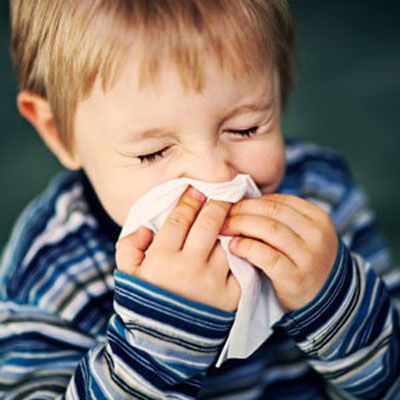為何感到厭煩?
Eight Reasons Why We Get Bored
Source: William Perugini/Shutterstock psychologytoday
Here are a few main causes of boredom:
1. Monotony in the Mind
Boredom is similar to mental fatigue and is caused by repetition and lack of interest in the details of our tasks (such as tasks that require continuous attention, waiting at the airport, prisoners locked in cells). Any experience that is predictable and repetitive becomes boring. In general, too much of the same thing and too little stimulation can cause in its victim an absence of desire and a feeling of entrapment (Toohey, 2012).
2. Lack of Flow
Flow is a state of total immersion in a task that is challenging yet closely matched to one’s abilities, akin to “being in the zone.” Flow occurs when a person’s skills match the level of challenge presented by the environment and when a task includes clear goals and immediate feedback. Tasks that are too easy are boring. In contrast, tasks that people perceive to be too difficult lead to anxiety.
3. Need for Novelty
Some individuals are more likely to be bored than others. People with a strong need for novelty, excitement, and variety are at risk of boredom. These sensation seekers (e.g., skydivers) are likely to find that the world moves too slowly. The need for external stimulation may explain why extroverts tend to be particularly prone to boredom. Novelty seeking and risk-taking is the way that these people self-medicate to cure their boredom.
4. Paying Attention
Boredom is linked to problems with attention. What bores us never fully engages our attention. After all, it is hard to be interested in something when you cannot concentrate on it. People with chronic attention problems, such as attention-deficit hyperactivity disorder, have a high tendency for boredom.
article continues after advertisement
5. Emotional Awareness
People who lack self-awareness are more prone to boredom. A bored individual is unable to articulate what it is that he or she desires or wants to do. They have trouble describing their feelings. An inability to know what will make one happy can lead to a more profound existential boredom. Not knowing what we are searching for means that we lack the capacity to choose appropriate goals for engagement with the world (Eastwood, 2012).
6. Inner Amusement Skills
Individuals lacking the inner resources to deal with boredom constructively will rely on external stimulation. In the absence of inner amusement skills, the external world will always fail to provide enough excitement and novelty.
7. Lack of Autonomy
People feel boredom a lot when they feel trapped. And feeling trapped is a big part of boredom. That is, they are stuck or constrained so that their will cannot be executed. For example, adolescence is a peak period for boredom, largely because children and teenagers are not given a lot of control over what they want to do.
8. The Role of Culture
In many ways, boredom is a modern luxury (Spacks, 1996). Boredom was literally nonexistent until the late 18th century. It came into being as the Enlightenment was giving way to the Industrial Revolution. Early in human history, when our ancestors had to spend most of their days securing food and shelter, boredom wasn't an option.
Boredom also has its benefits. It is important to see boredom as a “call to action” (Svendsen, 1999). Nietzsche suggested that men of rare sensibility value boredom as an impetus to achievement. Boredom can be a catalyst for action. It can provide an opportunity for thought and reflection. It can also be a sign that a task is a waste of time—and thus not worth continuing.
如何殺菌?
How to Keep Germs from Spreading Around goodhousekeeping
1. Crank up your cleaning arsenal
Good old soap and water is effective at washing away dirt, debris, and even germs, but it doesn't kill germs. Only sanitizers and disinfectants do that. Sanitizers kill bacteria and disinfectants eradicate bacteria, viruses, even fungi. Purchase only sanitizers and disinfectants that are EPA-registered (you'll find it on the label), like those from Clorox and Lysol, to be certain they'll work. For best results, these products have to remain on surfaces anywhere from 10 seconds to several minutes, so be sure to follow the label directions carefully.
2. Touch-up touch points
Some of the germiest places in the house are the hot spots everyone touches: doorknobs, faucet levers, appliance handles, and remote controls. Clean and disinfect these daily when someone in the house is sick. For delicate items like remote controls and keyboards, use a rubbing alcohol-dipped cotton ball that's well-wrung (not drippy) or a well-wrung pre-moistened disinfecting wipe. Swab the surfaces carefully to keep liquids from seeping inside electronics.
RELATED: How to Keep Your Office Germ-Free
3. De-bug bedding
Lots of rest means lots of soft surfaces to clean. Launder bed sheets, pillowcases, and towels in hot water. Dry them using the antibacterial cycle or the hottest temperature your dryer offers. Wash blankets, throws, and bathrobes according to label directions and spritz water-safe, but un-washable items, like throw pillows and mattresses, with a fabric-safe spray, like Lysol's Disinfectant Spray or Neutra Air Fabric Mist to kill bacteria. Afterward, wash your hands and run an empty hot wash cycle through your washing machine with a dose of bleach added.
4. Tackle the trash
Dirty tissues are a breeding ground of germs, so be sure to empty wastebaskets often. Give the bins a once over with a disinfectant wipe or even run small ones through a dishwasher cycle. To make disposal easier, line trash receptacles with plastic bags or put out paper bags for the patient to use.
5. Replenish supplies
When a family member is sick it's important assign them a specific towel that gets washed frequently or give them paper ones to use. Once the cold passes, replace their toothbrush so there's no chance of becoming re-infected. Keep bottles of an alcohol-based hand sanitizer around the house so it's convenient to use.










0 意見:
張貼留言